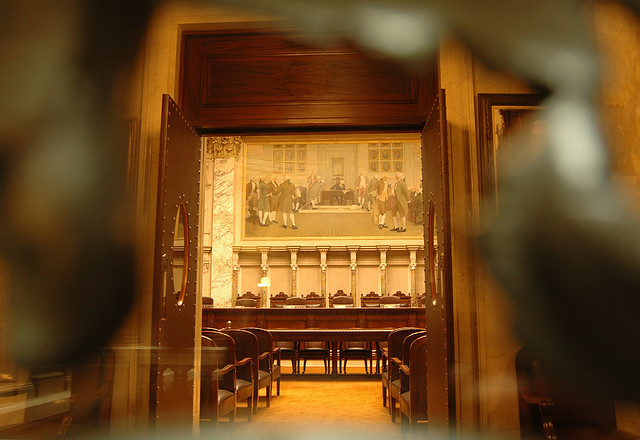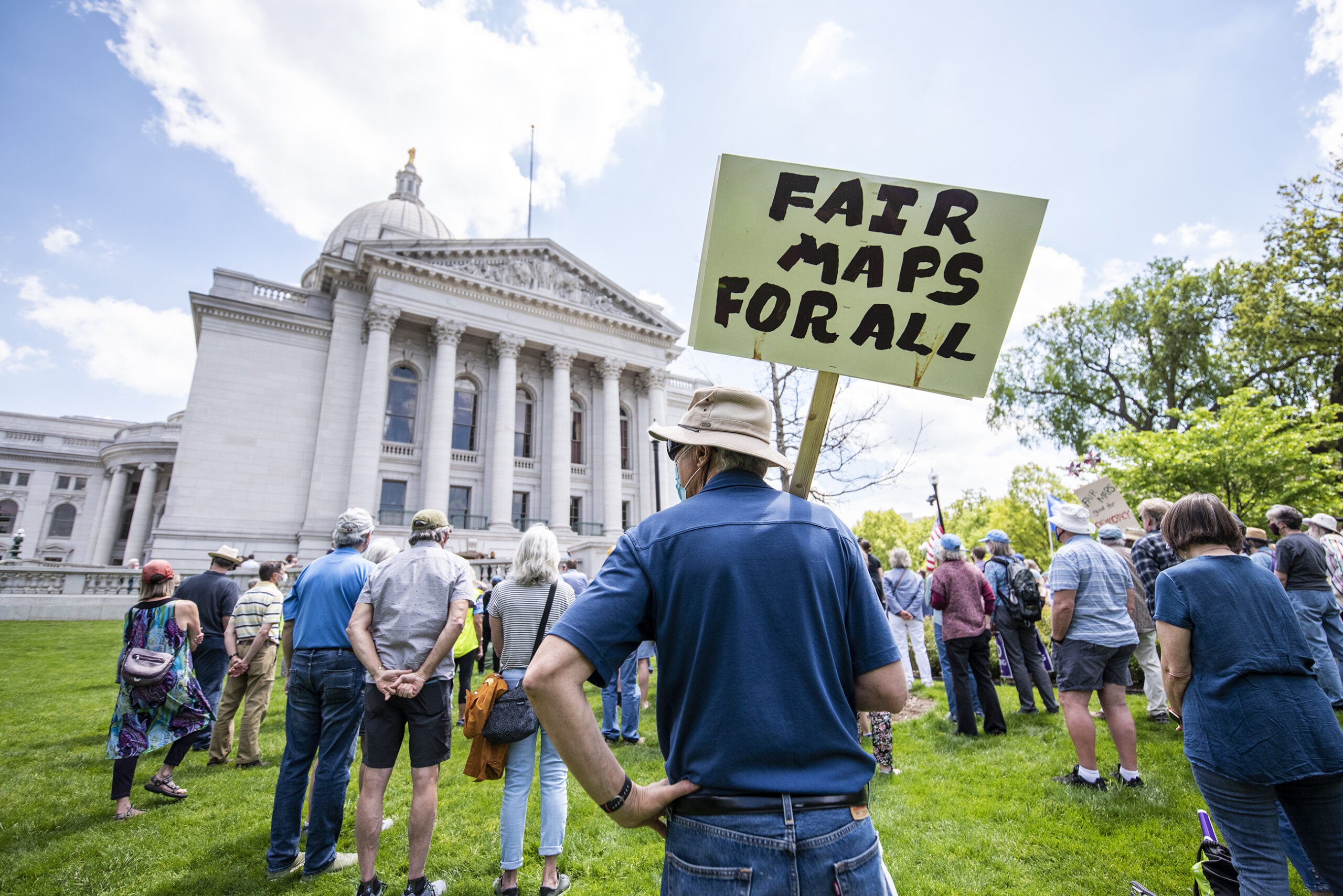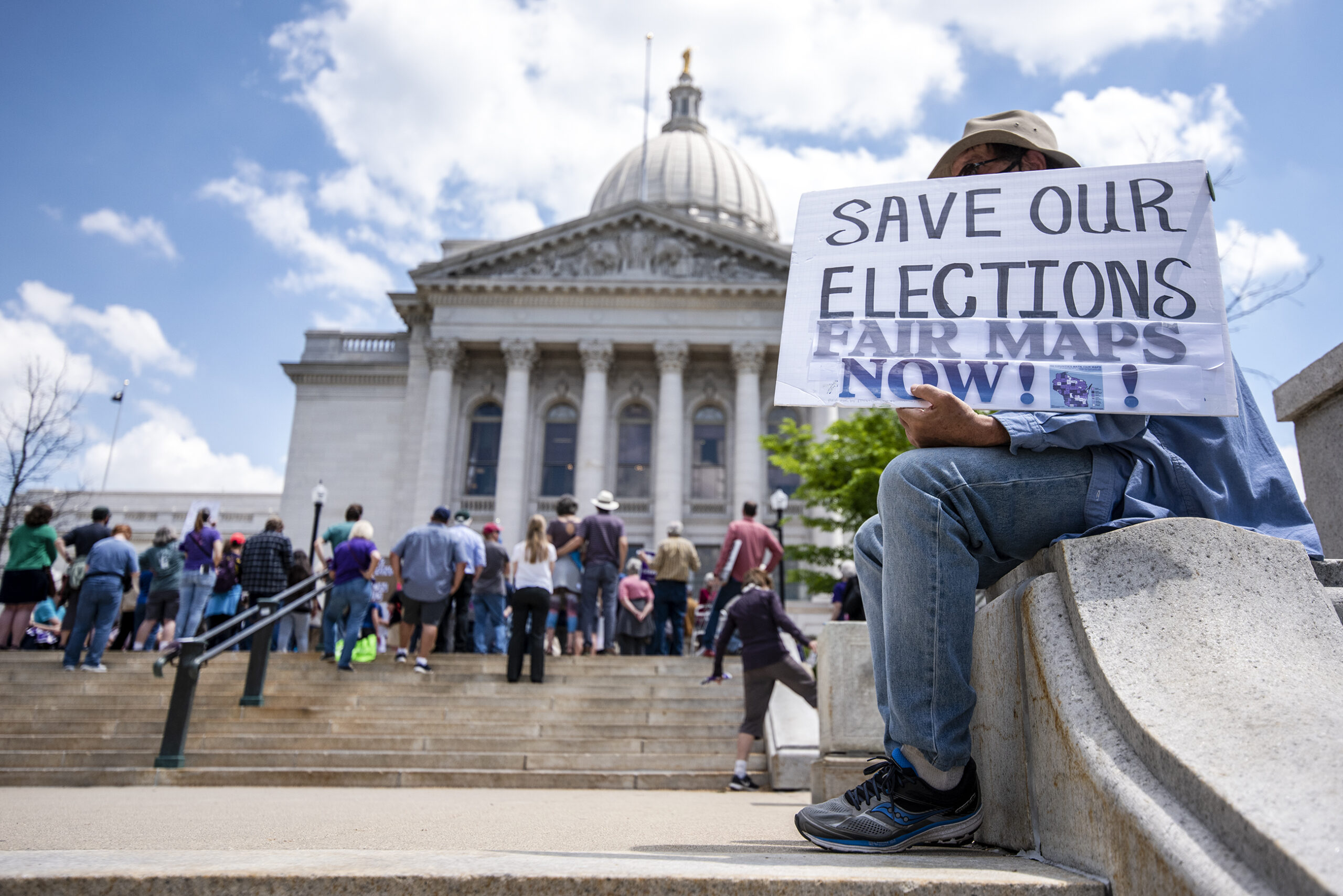The state Supreme Court will weigh in on the constitutionality of three state laws on Thursday that have been at the center of partisan political debate since 2011.
The first ruling that will be handed down could resolve the last legal challenge to Act 10, the law that stripped public employee unions of most of their collective bargaining rights.
Another ruling will determine whether a state law requiring voters to have a photo ID is constitutional.
Stay informed on the latest news
Sign up for WPR’s email newsletter.
Finally, a third ruling will determine whether the state’s domestic partner registry violates the state’s constitutional amendment banning gay marriage.
Former Supreme Court Justice Janine Geske said it’s unusual for the court to decide so many big cases so late in the year. She expects the opinions will reflect the divisions on the court.
“I anticipate there will be dissents and maybe concurring opinions and statements back and forth between the dissent and the majority opinion, as we’ve seen in some of these other cases,” she said. “So I suspect that everybody is going to be doing a lot of reading when the cases finally do come out.”
If the court rules to uphold the voter ID law or strike down the domestic partner registry, the rulings would not have an immediate effect because challenges to both the marriage amendment and the voter ID law are still pending in the federal appeals court.
Geske said that if the court strikes down the voter ID law, then that would bring an end to the federal challenge.
“lf our court were to find voter ID … unconstitutional under the Wisconsin Constitution, it would moot out anything the federal court was doing and it would be done,” she said.
Lawyers defending the domestic partner registry say they’re confident the court will agree with their argument that while the registry grants some benefits to same-sex partners, it does not create a legal status similar to marriage.
Wisconsin Public Radio, © Copyright 2024, Board of Regents of the University of Wisconsin System and Wisconsin Educational Communications Board.






